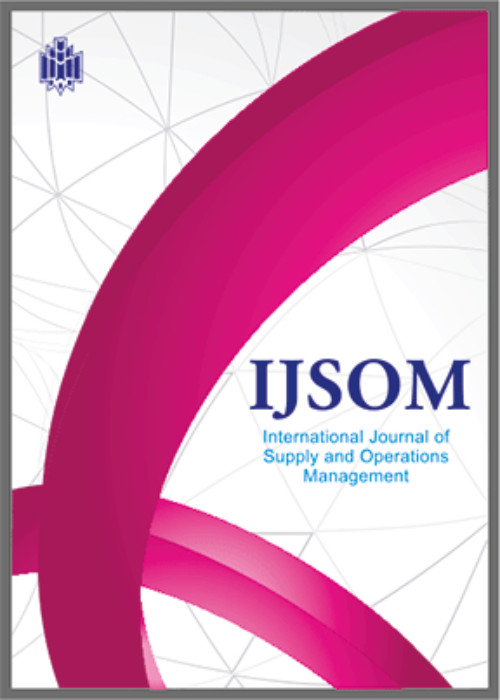An ontological approach to model outbound logistics based on Internet of things (OLP-IoT)
Author(s):
Article Type:
Research/Original Article (دارای رتبه معتبر)
Abstract:
Currently, the performance of outbound logistics processes is an important element for companies that would like to increase the level of customer satisfaction and improve the visibility of the supply chain, thus guaranteeing the quality and safety of products. On the other hand, the concept of smart logistics has been proposed as a technological solution that aims to improve performance, security and traceability in the logistics of companies. A crucial element to achieve this goal is to benefit from the emergence of the Internet of Things (IOT) and related technologies. Indeed, IOT streamlines the logistics process and improves its efficiency. However, to track and trace a product’s life cycle, its physical state, associated activities, and involved objects, a large amount of heterogeneous data will be generated from various sources, especially from sensors and RFID (Radio Frequency Identification) tags. Moreover, the observations produced by these sources are made available with heterogeneous vocabularies and data formats. This heterogeneity creates interoperability problems and prevents the adoption of generic solutions on a global scale which make it difficult to reuse data for other purposes and share them among different stakeholders. To address this challenge, we propose in this work an approach based on semantic modeling, using the semantic web and ontologies, to improve the interoperability and knowledge sharing of different phenomena in the outbound logistics domain. In this sense, we have designed and developed an OLP-IOT ontological approach adapted to logistics data and offering semantic enrichment of IOT data. This approach allows the sharing of sensor observations, the identification of products and logistics objects involved as well as the contextualization of data and the reuse of processed knowledge and information. The ontology was developed using the Neon methodology, which emphasizes reuse and modularization. This explicit knowledge is then used to develop a reasoning system to guide the logistic expert for an incremental and semi-automatic construction of a software solution to an instantaneous problem.
Keywords:
Language:
English
Published:
International Journal of Supply and Operations Management, Volume:10 Issue: 4, Autumn 2023
Pages:
456 to 484
magiran.com/p2622967
دانلود و مطالعه متن این مقاله با یکی از روشهای زیر امکان پذیر است:
اشتراک شخصی
با عضویت و پرداخت آنلاین حق اشتراک یکساله به مبلغ 1,390,000ريال میتوانید 70 عنوان مطلب دانلود کنید!
اشتراک سازمانی
به کتابخانه دانشگاه یا محل کار خود پیشنهاد کنید تا اشتراک سازمانی این پایگاه را برای دسترسی نامحدود همه کاربران به متن مطالب تهیه نمایند!
توجه!
- حق عضویت دریافتی صرف حمایت از نشریات عضو و نگهداری، تکمیل و توسعه مگیران میشود.
- پرداخت حق اشتراک و دانلود مقالات اجازه بازنشر آن در سایر رسانههای چاپی و دیجیتال را به کاربر نمیدهد.
In order to view content subscription is required
Personal subscription
Subscribe magiran.com for 70 € euros via PayPal and download 70 articles during a year.
Organization subscription
Please contact us to subscribe your university or library for unlimited access!


